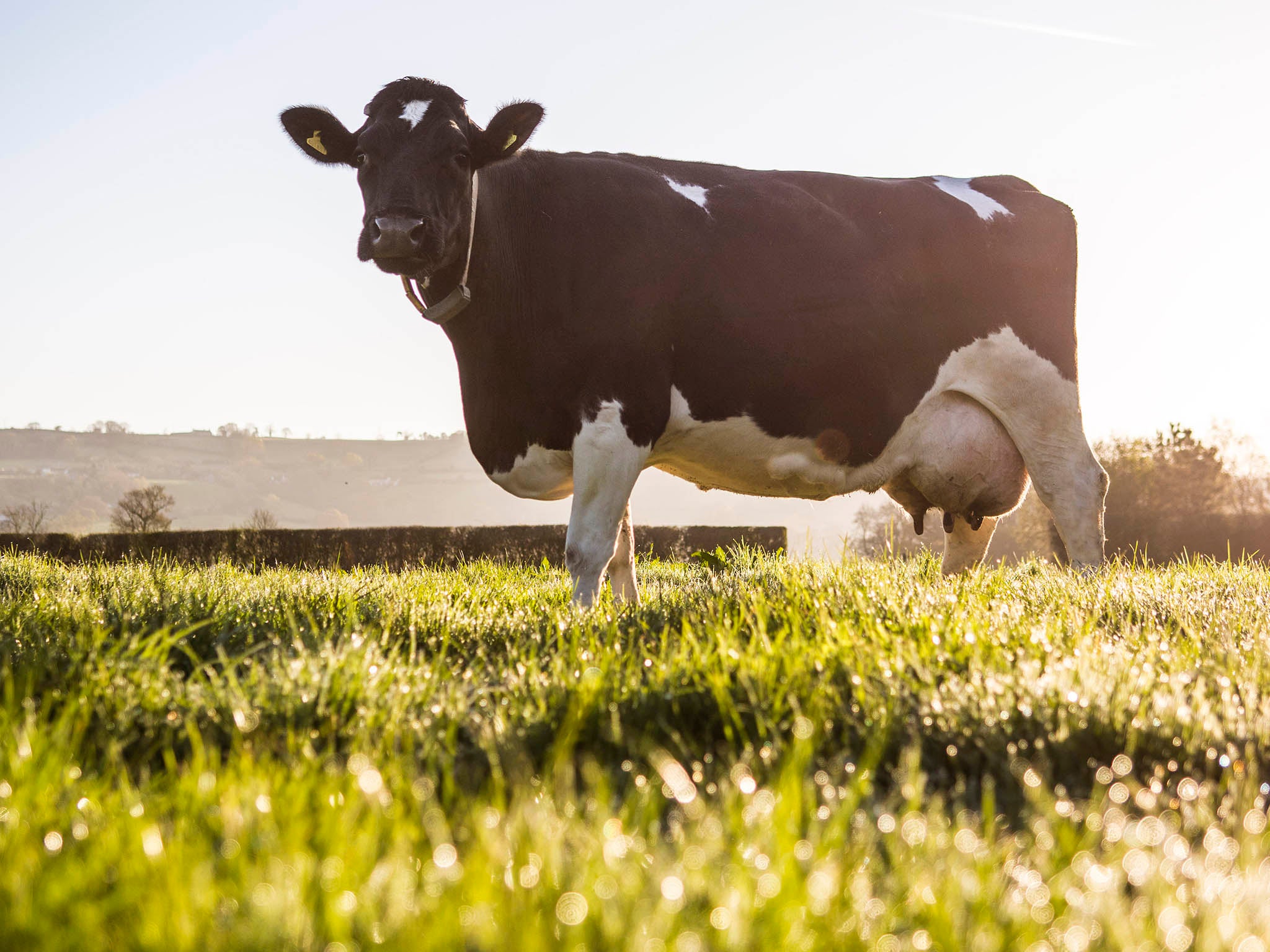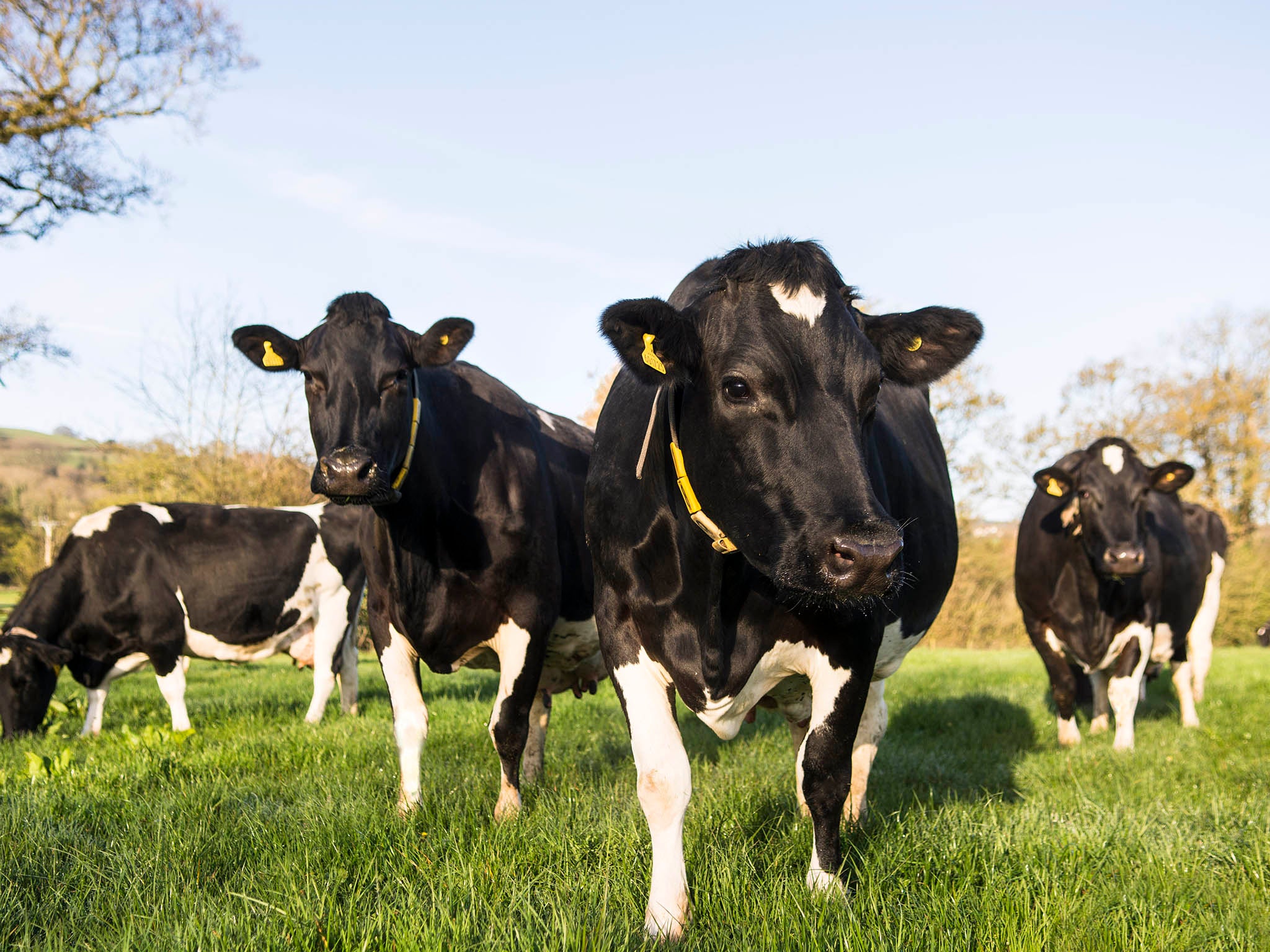Organic September: Why dairy is a good place to start
Going organic is not only cheap when it comes to products like milk but it encourages more sustainable farming methods that make for happier cows

Your support helps us to tell the story
From reproductive rights to climate change to Big Tech, The Independent is on the ground when the story is developing. Whether it's investigating the financials of Elon Musk's pro-Trump PAC or producing our latest documentary, 'The A Word', which shines a light on the American women fighting for reproductive rights, we know how important it is to parse out the facts from the messaging.
At such a critical moment in US history, we need reporters on the ground. Your donation allows us to keep sending journalists to speak to both sides of the story.
The Independent is trusted by Americans across the entire political spectrum. And unlike many other quality news outlets, we choose not to lock Americans out of our reporting and analysis with paywalls. We believe quality journalism should be available to everyone, paid for by those who can afford it.
Your support makes all the difference.This weekend marks the start of Organic September, the UK’s biggest campaign dedicated to a growing movement of farmers offering quality food made to higher welfare and environmental standards.
For a long time organic’s had a reputation of being a luxury product, a status symbol for the shopping baskets of the middle classes with a Waitrose habit.
We talk of non-organic as “conventional” farming when in reality using pesticides and rearing animals inside factories is a far cry from our farming heritage.
There is, however, a resurgence in organic as an increasing number of people are seeing it for what it really is: naturally produced food.
It undeniably comes with a higher price tag, but at about 10p extra per pint organic milk is one of the cheapest ways to buy into the movement.
Organic dairy systems produce a third less milk than non-organic farming but the milk contains 50 per cent more omega-3 fatty acids. These provide protection against cardiovascular diseases and dementia in humans.
Raw Milk
Most of the milk we buy is heat-treated to kill bacteria. Raw milk doesn’t go through this process. Converts, including health-foodie Gwyneth Paltrow, argue it’s creamier and full of nutrients and good bacteria. It relies on the skill of the farmer to ensure it’s E coli- and salmonella-free, so it comes with some risk. As such, you can often only buy it direct from farms.
It’s also one of the most important changes you can make when it comes to the welfare of cows.
Dairy cows and ‘rape racks’
The average dairy cow now produces an incredible 93 per cent more milk than in 1975 – and this efficiency comes at a huge cost to her welfare. “They are working the equivalent of a human being made to jog a marathon every day,” says Philip Lymbery, chief executive of Compassion in World Farming, a non-profit organisation base in Godalming, Surrey.
These cows are on a “metabolic knife’s edge” according to Jon Walton of the Soil Association – which certifies organic food and campaigns for healthy, humane and sustainable methods. “If they’re not getting the energy they need to meet the demand of their udders, then you get problems with diseased, thin cows and they don’t live as long because of that.”
Cows typically only achieve these super-high levels of production for about three years, after which it’s not uncommon for them to become chronically lame or infertile. At this point they are transported hundreds of miles to be slaughtered and used for low-grade beef.

Cows need to produce a calf every year to lactate and are artificially inseminated in what animal-rights activists have dubbed “rape racks”. Most calves are taken away from their mothers, a day or two after birth, who can then be milked for human consumption, causing obvious upset to both animals.
Female calves are fed substitute milk and introduced into the dairy system from as young as two years’ old – before they are fully grown.
The fate of male calves born to dairy cows is just as bad. It’s not financially viable to raise them for meat as they are born to cows specifically bred to have huge udders and skinny legs, so around 55,000 are killed at birth each year in Britain.
Unfortunately this is how a huge amount of milk is now produced in the UK, from Cornwall to Wales and Scotland, as mapped by Compassion in World Farming.
Dairy farming with difference
However well – or badly – milk is produced, consumers have no way of knowing what they’re buying in supermarkets. Currently, the only way to guarantee higher welfare is to choose organic.
Although also artificially inseminated and separated from her calf, an organic cow has a very different life. Organic standards insists cows are outside whenever the weather permits, and on average organic dairy cows are out to pasture more than 200 days a year. They also have to be fed at least 60 per cent forage (i.e. grass) which is their natural diet and important for their health. Routine antibiotic use is banned.
The cows also live significantly longer and happier lives. At Yeo Valley, a 13-year-old cow called Philbert is still very much part of the milking herd. Like all sustainable farms, it operates a “nose-to-tail” philosophy. Once Philbert is no longer milked, she will be left to graze and eventually used for meat.
Veal
Rather than slaughtering male calves at birth, another option is to use them for veal. However, demand in the UK isn’t very high, in part, because of the horror stories about how calves used to be cruelly bred. “Veal crates are a thing of the past, now UK legislation is fairly good,” says the Soil Association’s Jon Walton. In an organic system calves are reared with plenty of space and light inside suitable buildings over winter and outside at pasture for the rest of the year. They are fed a varied diet and, when available, the care of a foster cow.
This doesn’t mean the meat will be tough and tasteless, as we tend to assume about older meat in Britain. “Galician beef, from older cows put into retirement and left to graze and get fat in their own time, is considered a real delicacy in Portugal and Spain,” explains Jerry Naish of Yeo Valley. “The flavour of the meat changes because the animal is older, becoming more developed. The fat marbles through the meat more, providing more juicy and flavoursome beef.”
Richard Smith, farm manager at Daylesford, is a true pioneer of farming in tune with nature.
He has a theory that the modern dairy cow was at its best in the 1970s “because we had this cow that was taken to a level where it was producing a reasonable amount of milk on a reasonable diet and lasted for a long time”.
Smith has proven it is still possible to breed cows for both dairy and meat – and to make the system profitable. “Economically the replacement rate is far less and because the Friesian cow has a better confirmation of flesh on its body if it gives birth to a pure Friesian male calf it is still useful in my beef enterprise,” he says.
Compassionate farming is the aim at Calf at Foot micro-dairy, a small “raw” milk producer, where the cows get to stay with their calves for the natural weaning period – about nine months – but are also milked for human consumption during this time.
Cream of Galloway is on the first year of a three-year plan to make a similar milking system work on a bigger scale. Far from being expensive, they hope to show that food produced in this way can actually cost less.
Lizzie Rivera is the author of ethical lifestyle website bicbim.co.uk
Join our commenting forum
Join thought-provoking conversations, follow other Independent readers and see their replies
Comments